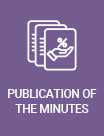Seminario de Microeconomía Aplicada - Hub-and-spoke cartels: Theory and evidence from the grocery industry
El seminario de Microeconomía Aplicada del Banco de la República es un espacio para discutir trabajos en progreso en las diferentes áreas de la microeconomía aplicada como economía laboral, organización industrial, economía de la salud, economía agrícola, economía de la educación, desarrollo económico, crimen, economía pública, medio ambiente, entre otras.
Robert Clark: is Professor of Economics, Department of Economics, Queen’s University. A leading expert on the industrial organization of financial markets, Professor Clark’s work has studied competition in the banking sector and its implications for financial stability. His research is focused on the evolution of banking market structure, often resulting from changes in regulations or technology, and the impact of this evolution on mortgage pricing, access to credit and bank risk. He has also published widely on the economics of industrial organization writ large, including research on procurement policy, price controls and price-fixing. He holds the Stephen J.R. Smith Chair in Economic Policy at Queen’s, and is a fellow at CIRANO and a faculty advisor at the John Deutsch Institute.
Resumen del documento: Numerous recently uncovered cartels operated along the supply chain, with firms at one end facilitating collusion at the other – hub-and-spoke arrangements. These cartels are hard to rationalize because they induce double marginalization and higher costs. We examine Canada’s alleged bread cartel and provide the first comprehensive analysis of hub-and-spoke collusion. Using court documents and pricing data we make three contributions: i) we show that collusion was effective, increasing inflation by about 40%, (ii) we provide evidence that collusion existed at both ends of the supply chain, and iii) we develop a model explaining why this form of collusion arose.
Tiempo de exposición: 1:30 p. m. a 3:00 p. m.














.png)




































